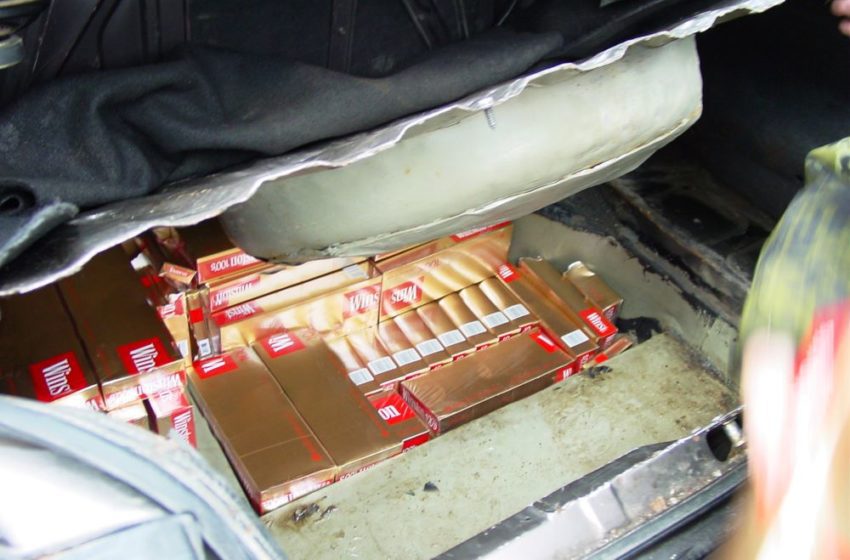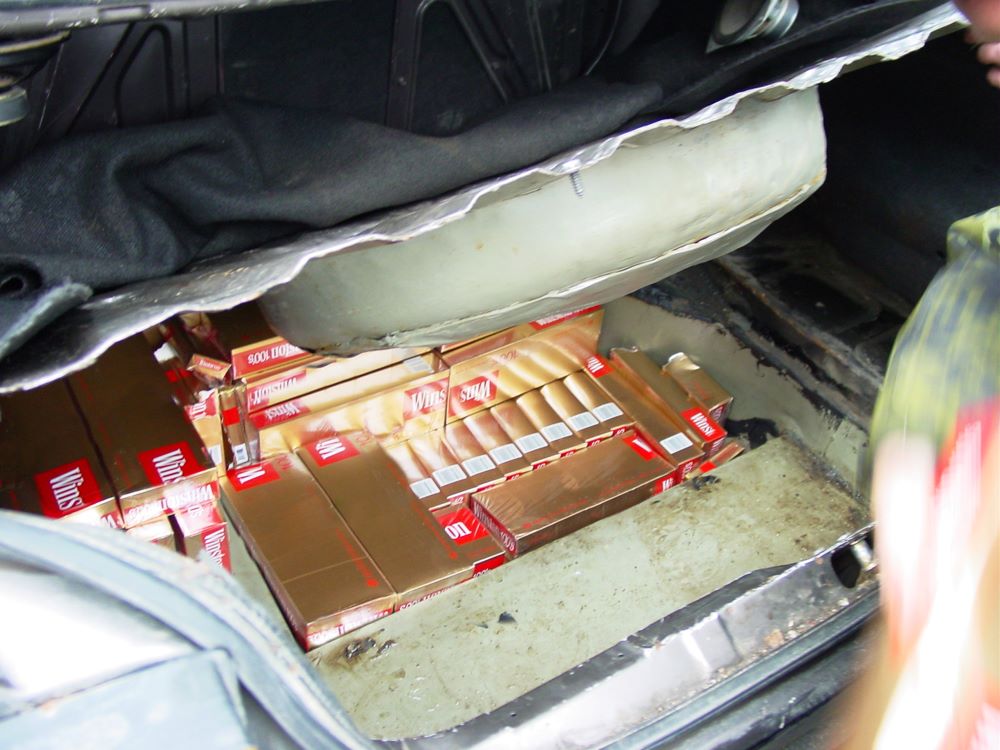A Never-Ending Fight
- Also in TR Illicit Trade Print Edition
- March 1, 2023
- 0
- 11 minutes read

Photos: Government of Serbia

The illicit cigarette trade continues to plague the tobacco industry in the Balkans.
By Vladislav Vorotnikov
Over the past decades, the illegal cigarette business has been flourishing in Serbia, Montenegro and Bosnia and Herzegovina, causing pain not only to the Balkans but also to the European Union. In recent years, the battle against nonregistered tobacco plantations and underground cigarette factories has seemingly intensified, but complete victory remains beyond the horizon.
Serbia is the largest tobacco market in the Western Balkans. In 2022, legal sales stood close to $2.2 billion compared to roughly $900 million in Bosnia and Herzegovina and $95 million in Montenegro. It is estimated that smokers account for 40 percent of the population in Montenegro and 30 percent in Serbia as well as in Bosnia and Herzegovina.
The size of the illegal tobacco market in the Western Balkans is one of the hallmarks of the region. Its share varies significantly across the region. Illegal products account for 6.5 percent of tobacco consumption in Serbia, 20.3 percent in Bosnia and Herzegovina and 27.9 percent in Montenegro, a survey conducted by international nongovernmental organization the Global Initiative Against Transnational Organized Crime (GIATC) showed. Some other analysts put the size of the illegal sales in Serbia at 15 percent.
The picture is believed to be similar in Albania and Northern Macedonia, where no comprehensive studies aiming to calculate the share of illegal tobacco products in retail sales have been made in the past several years.
Satellites Against Criminals
Serbia is a pioneer in using satellite technologies in fighting against illegal tobacco plantations.
In 2022, law enforcement agencies seized 142 tons of illegal tobacco leaf and tobacco products in Serbia, the tobacco administration of the Serbian finance ministry said in its annual report. This is lower than in the previous years, which indicates that the battle against tobacco plantations has finally started paying off.
The positive developments are attributed mainly to new technologies that the state phytosanitary inspection employs with help from tobacco factories, said Goran Pekez, director of corporate affairs of Japan Tobacco International’s (JTI) Serbian office.
To battle against illegal plantations, the Serbian authorities took measures unprecedented for this part of the world. The government has launched a group of satellites to survey the terrain with the aim of identifying all plots where tobacco leaf is illegally grown, Pekez said. Serbia is a pioneer in using satellite technologies in fighting against illegal tobacco plantations.
Using space technologies is expensive, but the efforts already bear fruits. “The success of the satellite system can be seen in the results of the control measures, which are showing improvements every year. In the last five years, illegal tobacco plantations in Serbia have been almost eradicated,” Pekez said, estimating that during this period, roughly 800 tons of illegal tobacco were seized, preventing damage to the Serbian budget of around $453 million.
When discovered, all illegal plantations are destroyed in order to prevent illicit tobacco from ending up in the supply chain. Still, some officials, acknowledging the positive impact of the satellite imaging, argue that it is unlikely to completely take down the illegal tobacco business in the Balkan region. One of the problems is that satellites primarily search for large tobacco farms, frequently overlooking smaller plantations.
In 2022, Serbian tobacco producers donated four drones and accompanying equipment worth $1.2 million to the phytosanitary inspections to improve control of illegal tobacco plantations in the country, Pekez said.

Deep Routes, Strong Ties
Currently, the illegal tobacco trade negatively impacts the economies of each Balkan country, but it has not always been that way. In the 1990s, cigarette smuggling became a means of survival for Montenegro, which extremely needed money to fund armed forces during the Balkan War. The turmoil of those bloody years laid the ground for what some analysts describe as the largest illegal tobacco industry in Europe.
“Many of the high business and political elite today are still connected to cigarette smuggling,” the GIATC survey discovered, adding that a share of illegal cigarettes is destined for local markets, but large quantities are also smuggled to the European Union and some other countries.
For example, in 2021, law enforcement agencies discovered a channel through which at least 840 million counterfeit cigarettes, known in the Balkans under the common name cheap-white, had been smuggled from Montenegro on fishing boats and small cargo ships to the Mediterranean. The Montenegrin port of Bar is currently known as the key European hub for cigarette smuggling.
“The region’s proximity to lucrative markets in Western Europe, its links to North Africa and Turkiye and increased traffic from Latin America and Asia, combined with vulnerabilities linked to corruption, create ideal conditions for criminal networks to engage in such trafficking. The problem seems to be growing,” the GIATC said in another report focused on the Balkan region.
“Seizures are abundant, but regionally integrated port-oriented security responses remain scarce despite multiple police operations,” it added.
In addition, the illegal tobacco business in the Western Balkans keeps evolving. While the authorities have seemingly succeeded in fighting against nonregistered tobacco plantations, there are reports about the growing smuggling of raw tobacco, primarily from China. Tobacco smuggling in the Balkans is controlled by organized criminal groups also involved in drug traffic.
Many of the business and political elite today are still connected to cigarette smuggling.
Mold, Waste and Animal Excrement
In the fight against illegal cigarettes, consumers also play an important role. In Serbia, a large share of customers buys counterfeit cigarettes from resellers, Pekez said, attributing this to a considerable price difference with legally manufactured tobacco products.
Consumers remain loyal to illegal cigarettes even though the possible danger to their health from counterfeit products manufactured in underground factories and workshops, which has been widely covered in recent years by local media.
“We emphasize that these products, which are not subjected to [sanitary] control and do not meet the standards common for tobacco products, can be dangerous to health—they can often contain numerous harmful ingredients—mold, waste and even animal excrement,” Pekez said.
The widening gap between counterfeit and legal cigarettes largely determines consumer preferences. A rise in excise rate has doubled the size of the illegal cigarettes market in Bosnia and Herzegovina during the past five years, the GIATC quoted from a source in the local government. Currently, prices also rise in Serbia, which is targeting to put its legislation in line with European regulations.
From Jan. 1, the price of all types of cigarettes in Serbia will increase by roughly $0.09 per pack due to a rise in excise rate to 33 percent. Under the excise duty schedule adopted in 2020, it will continue to increase gradually until 2025.
Tobacco Giants Scale Up in Serbia
Despite the wide presence of counterfeit products on the market, Serbia is the only country in the region where three major global tobacco companies have factories. In Serbia, tobacco has been grown for centuries. Currently, the largest legal tobacco plantations are located in South Pomoravlje and Vojvodina. Several cigarette factories are running in the country, including Philip Morris International; Nis, formerly known as Tobacco Industry Nis; BAT Vranje, previously named Tobacco Industry Vranje; as well as JTI Senta and Monus Cigarettes.
In December 2022, JTI inaugurated a new production line worth $16 million at its Senta factory and announced a new five-year investment cycle in Serbia worth $51 million.
“When a Japanese investor comes to a country to invest in it, other investors from around the world also feel comfortable about investing in that country,” Serbian Prime Minister Ana Brnabic said during the opening ceremony. “That is why Japanese investments are so important in these difficult and challenging times.”
JTI is the only foreign company that is purchasing locally grown tobacco. The new production line will double the capacity of the Senta factory and boost its export potential.
Other market players also invested in their local operations. In 2020, BAT Vranje started the production of cigarettes under the Dunhill brand.
The production of Dunhill in Vranje was called to increase BAT’s market share in Serbia and was in line with the company’s strategy to expand its presence in Southeastern Europe, the company said at that time. In addition, new investments were expected to bolster cigarette export from Serbia. The company estimated that it exported a third of its production in Serbia in 2020 compared to only 10 percent in 2016.
Since emerging in the country in 2003, PMI has invested over $800 million in the Serbian affiliate, remaining one of the country’s largest investors. The Nis factory is one of the most advanced operations in PMI’s global network of factories.
PMI saw its export from Serbia grow by a factor of 20 times between 2010 and 2020. Aleksandar Jakovljevic, managing director of PMI for Southeast Europe, said that the Nis factory had grown from a facility meant for the market of Serbia into a large regional and global production center, from which products were exported to more than 50 countries of the world.
In other countries of the region, however, things are not so bright. In 2022, Fabrika Duhana Sarajevo in Bosnia and Herzegovina, one of the oldest tobacco factories, suspended operation due to financial difficulties. The supervisory board of Badeco Adria, owner of the factory, decided to close it down as losses in the previous three years totaled €3.8 million. In 2021, Novi Duvanski Kombinat Podgorica, a tobacco factory in Montenegro, also stopped operation, citing excessive administrative pressure as the main reason for this step.
Despite the challenges associated with the illegal tobacco business, Serbia is expected to keep expanding cigarette production and export in the coming years, taking advantage of low production costs and its advantageous geographical position. A decisive victory against counterfeit cigarettes could fuel that growth, though it is unlikely to happen in the foreseeable future.
